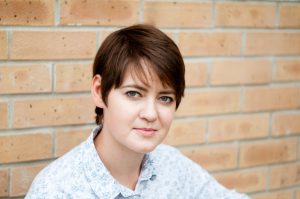 I had my first experience with psychology when studying at elementary school. Certainly, we did not study the fundamentals of psychoanalysis along with reading and arithmetic, I was just sent to an evening group with a school psychologist. I still remember how I asked her why we should attend such strange classes – nobody taught us anything, and at first glance it seemed that the kids just came to play. The psychologist said that she could help me in any areas where I experienced difficulties. I indignantly replied that I coped with my lessons perfectly. Then she laughed, “This is the only thing where I cannot help you. I always wanted to be a teacher and help children, but I have been bad at math since my childhood. Psychology was the only university course where I did not need to pass a mathematics exam for admission.”
I had my first experience with psychology when studying at elementary school. Certainly, we did not study the fundamentals of psychoanalysis along with reading and arithmetic, I was just sent to an evening group with a school psychologist. I still remember how I asked her why we should attend such strange classes – nobody taught us anything, and at first glance it seemed that the kids just came to play. The psychologist said that she could help me in any areas where I experienced difficulties. I indignantly replied that I coped with my lessons perfectly. Then she laughed, “This is the only thing where I cannot help you. I always wanted to be a teacher and help children, but I have been bad at math since my childhood. Psychology was the only university course where I did not need to pass a mathematics exam for admission.”
The honesty of the school psychologist won me over. I thought that I really wanted to be around such free, easygoing, pleasant, and self-confident people like her, and when I grew up, I wanted to become like her.
In high school, I often went to the office of another school psychologist. I cannot say that I shared my secrets with her, but the opportunity to talk with an understanding and attentive adult, who was not directly related to my life, seemed to me to be very valuable and useful. Those conversations helped me to recover during exams, to adequately assess classroom conflicts, and to believe in myself in difficult situations. Certainly, when the time came to choose a profession, I did not take into account my childhood plans, and was admitted to a prestigious university course in finance, like most of my friends. However, at my university, in addition to our major specialty, it was possible to choose a certification program unrelated to that specialty. This was when I decided to take the first step towards my childhood dream, and I chose a program in social psychology and conflict management.
After graduation, I familiarized myself with transactional analysis, which strengthened my confidence about exactly what I wanted to do next.
When I started to study to be a psychotherapist, I had already worked at a small IT company in a managerial position. I saw the amazing opportunities in transactional analysis, and I also paid attention to its application for organizations, so I started to study this area.
After several years of intense study, my life changed dramatically when I moved to live in the UK. This opened a lot of new opportunities for me. I still continue attending seminars of Ukrainian trainers online, and at the same time, I have the possibility of learning from the British transactional analysts.
I have the felt anxiety and difficulties faced by immigrants in my own experience, and I decided to open a private practice here in order to share the knowledge, energy, and internal resources I have acquired.
